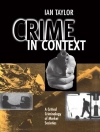This volume presents empirical studies and theoretical reflections on Evolutionary Governance Theory (EGT), its most important concepts and their interrelations. As a novel theory of governance, EGT understands governance as radically evolutionary, which implies that all elements of governance are subject to evolution, that these elements co-evolve and that many of them are the product of governance itself. Through this book we learn how communities understand themselves and their environment and why they create the complex structures and processes we analyze as governance paths. Authors from different disciplines develop the EGT framework further and apply it to a wide rage networks of power, governance of agricultural resources etc. The contributors also reflect on the possibilities and limitations of steering, intervention, management and development in a world continuously in flux. It bridges the gap between more fundamental and philosophical accounts of the social sciences and applied studies, offering theoretical advancements as well as practical recommendations.
Содержание
Part I: Introduction.- Part II: Configurations of Actors and Institutions.- Part III: Configurations of Power/Knowledge.- Part IV: Case Studies.- Part V: Conclusions.- Glossary.
Об авторе
Raoul Beunen is Assistant Professor of Environmental Governance at the Faculty of Management, Science & Technology at the Open University, Netherlands and Visiting Researcher at the Strategic Communication Group of Wageningen University. He works on Evolutionary Governance Theory in the fields of natural resource management and spatial planning. His research explores the potentials and limitations of environmental policy and planning in the perspective of adaptive governance and sustainability.
Kristof Van Assche is Associate Professor at the University of Alberta, Visiting Associate Professor in Strategic Communication, Wageningen University, and Research Fellow at ZEF/ Center for Development Research, Bonn University. He is interested in evolution and innovation in governance, with focus areas in development, environment, spatial planning and design. His work is often comparative in nature, including a fieldwork component and theoretical reflections.
Martijn Duineveld is Assistant Professor of Cultural Geography at Wageningen University. He works on Evolutionary Governance Theory in the fields of geography and urban planning. He studies the dynamics of power / knowledge and places, processes of inclusion and exclusion, object- and subject formation in Governance. He teaches on human geography, cultural geography, sustainability, landscape architecture and planning. He is active in both academic and societal debates on citizenship, planning, governance and democratization.












